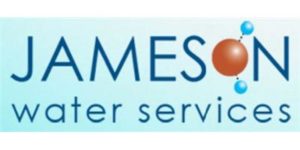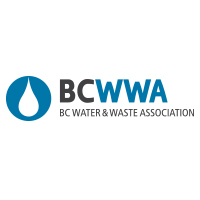Chlorine Handling
Course Overview
This five-day course provides operators with the fundamental knowledge to be able to safely use and handle chlorine gas and hypochlorite solutions.
You should take this course if you:
- Operate or maintain a facility that uses chlorine gas or hypochlorite solutions for disinfection purposes.
- Want to earn CEU credits that can be applied to water or wastewater systems continuing education requirements.
You will be asked to complete a knowledge assessment when you register to give the course facilitator an understanding of your acquired knowledge to date.
Learning Objectives
Upon completing the Chlorine Handling course, you will be able to:
- Understand the factors that can impact water quality, and the different methods that are used for disinfecting water, and their advantages and limitations, including filtration, aeration, UV disinfection, pH adjustment, and oxidants such as chlorine, chloramines and ozone.
- Safely apply chlorination and hypochlorination methods in your facility, including controlling for gases and residual by-products.
- Understand how to safely install, use, troubleshoot, and maintain equipment for chlorination and hypochlorination.
- Calculate chlorine and hypochlorination dosages based on water distribution system demands and hydraulics.
- Understand chlorine system design principles, including engineering controls, ventilation, alarm systems, and detection instruments.
- Understand and apply chlorine safety practices, and prepare for emergency response.
CEUs
This course provides:
- 2.4 core CEUs for small wastwater systems, small water systems, wastewater collection, wastewater treatment, water distribution, and water treatment (SWWS, SWS, WWC, WWT, WD & WT) EOCP certifications.
This interactive and hands on course is of interest to: operators, contractors, fire fighters, engineers and those who are responsible for the fire hydrants on their system. This program provides maintenance requirements and procedures for a wide selection of the common hydrants in use today. This 1 day program covers Fire Hydrant Maintenance procedures, including:
- Safety
- General hydrant maintenance requirements
- Manufacturer specific hydrant maintenance
- Hands on tear downs on several manufacturers hydrants
- Whenever possible, we invite the manufacturer’s representatives to present the material specific to their hydrants.
Management Skills Certificate Program: Project Management Skills
The Project Management Skills course is a five-day course focusing on project management skills in the water and wastewater industry. The course will also provide tools and techniques that help students work step-by-step through workplace problems and scenarios.
You should take this course if you are:
- Recently promoted to a supervisory or management role, or are interested in advancing to a supervisory or management role in the future.
- Interesting in brushing up your project management skills and taking them to the next level.
- A certified operator interested in earning continuing education unit (CEU) credits.
Upon completing this course, you will be able to:
- Successfully deliver projects
- Effectively lead your team and engage stakeholders
- Manage priorities and stress
- Perform a post-project analysis
In class supplies:
- Please note that this class is designed to be interactive and get students actively working together on a project. There are some interactive learning components that are best completed on a computer; please bring a laptop or team up with a colleague who is attending who can bring a laptop.
- Please also bring any open source tools or templates for project management software that you are familiar with and would like to use to assist with the course.
CEUs
- 3.0 related CEUs for small wastewater systems, small water systems, wastewater collection, wastewater treatment, water distribution and water treatment (SWWS, SWS, WWC, WWT, WD & WT) EOCP certifications.
Reservoir Maintenance and Cleaning
Course Overview
This one-day course addresses best practices for maintenance, cleaning, safety, and chlorination of reservoirs.
You should take this course if you are:
- A water system operator or administrator responsible for the operation and maintenance of reservoirs, tanks, or other distribution system storage facilities.
- A certified operator in water treatment, water distribution, or small water systems interested in earning continuing education unit (CEU) credits.
You will be asked to complete a knowledge assessment when you register to give the course facilitator an understanding of your acquired knowledge to date.
Learning Objectives
After completing the Reservoir Maintenance and Cleaning course, you will be able to:
- Understand distribution system storage, maintenance, inspection, and cleaning methods.
- Recognize safety concerns involved with operating or maintaining a reservoir, including confined space entry.
- Produce a chlorination plan for a reservoir.
CEUs
This course provides:
- 0.6 core CEUs for small water systems, water distribution and water treatment (SWS, WD & WT) EOCP certifications.
- Related CEUs for small wastewater systems, wastewater collection and wastewater treatment (SWWS, WWC & WWT) EOCP certifications.
Wastewater Collection 1
Course Overview
This initial course introduces operators to key concepts in the field of wastewater collection and broadens an operator’s knowledge of system fundamentals.
You should take this course if you are:
- Wanting to understand more, or entering into a role where you will be dealing with wastewater collection.
- In a role that requires an understanding of how wastewater collection systems work, or maintaining a facility classified as a wastewater collection (WWC1) facility.
- An operator who wishes to prepare for level 1 EOCP certification, or that wants to earn CEU credits that can be applied to water or wastewater systems continuing education requirements.
Learning Objectives
Upon completing Wastewater Collection 1, you will be able to:
- Understand wastewater collection systems and have an understanding of both the operation and maintenance of related equipment, including cleaning equipment, inspection equipment, safety equipment, valves, pumps, etc.
- Understand the maintenance and restoration of the wastewater collection system including cleaning, rehabilitating and repairing the collection system.
- Monitor, evaluate and adjust collection systems including an understanding of aeration, cross connections, infiltration, force mains, gravity sewers, lift stations, manholes, etc.
- Understand how to perform certain security, safety and administrative procedures including administering a safety/compliance program, developing operation and maintenance plans, maintaining records, performing workplace safety evaluations, etc.
Certification Information
Certifications and exams are administered by the Environmental Operators Certification Program (EOCP) – please contact them for more information or to register for an exam.
CEUs
This course provides:
- 2.4 core CEUs for small wastewater systems and wastewater collection (SWWS & WWC) EOCP certifications.
- Related CEUs for small water systems, wastewater treatment, water distribution, and water treatment (SWS, WWT, WD & WT) EOCP certifications.
Water Quality & Sampling for Water & Wastewater
Course Overview
This course provides a working knowledge of sampling for both potable water and wastewater systems.
You should take this course if you are:
- An operator in a water treatment or water distribution system, an operator in a wastewater treatment facility, or responsible for water or effluent quality.
- Interested in moving into a laboratory testing role.
- Preparing for a certification exam or want to earn CEU credits that can be applied to water or wastewater systems continuing education requirements.
Learning Objectives
After completing the Water Quality and Sampling for Water & Wastewater course, you will be able to:
- Understand how sampling is used to monitor for compliance with regulations for drinking water and wastewater effluent.
- Understand common sampling methods and procedures including grab samples, composite samples, and automatic sampler tools, and how to determine which procedure is appropriate based on the circumstance, including routine bacteriological sampling, full chemical analysis, sampling for THMs, influent sampling, primary clarifier sampling, mixed liquor sampling, and monitoring well sampling.
- Calculate the area, volume and time required to flush tanks and pipes.
- Understand the equipment and materials used for sampling, and the potential safety risks.
- Apply the concepts that guide a sampling plan, including chain of custody, and documentation.
- Apply quality management methods for quality assurance and quality control (QA/QC).
CEUs
This course provides:
- 1.2 core CEUs for small wastewater systems, small water systems, wastewater collection, wastewater treatment, water distribution and water treatment (SWWS, SWS, WWC, WWT, WD & WT) EOCP certifications.
Water Treatment 2
Course Overview
This intermediate course continues the learning for operators on key concepts in the field of water treatment and broadens an operator’s knowledge of system fundamentals.
You should take this course if you are:
- Maintaining a facility classified as a Water Treatment 2 facility.
- In a role that requires an in-depth understanding of how water treatment works.
- Wishing to move to an Operator Level II role within your organization.
- An operator who wishes to prepare for EOCP certification
Learning Objectives
After completing the Water Treatment 2 class you will be able to:
- Describe and apply procedures associated with monitoring, evaluating and adjusting treatment processes.
- Describe and apply more complex laboratory analysis procedures
- Address complex chlorine and chemical problem solving
- Describe quality control systems
Certification Information
- Certifications and exams are administered by the Environmental Operators Certification Program (EOCP) – please contact them for more information or to register for an exam.
CEUs
- 2.4 core CEUs for small water systems and water treatment (SWS & WT) EOCP certifications.
- Related CEUs for small wastewater systems, wastewater collection, water distribution, and water treatment (SWS, WWC, WD & WT) EOCP certifications.
This program is designed for operators, and those working with water distribution systems who are responsible for the day to day operation and maintenance. This 1 day program provides a variety of leak detection concepts such as leak detection justification, programs for water loss modeling and leak detection procedures. Agenda items include:
Leak Detection concepts:
- Water Leak History and Statistics
- Types of Leaks
- Leak Detection Programs
- Water Loss Modeling
- Leak detection
- Typical piping materials and their effect on leak detection
- Acoustic Leak detection procedures and equipment
- Geo Phones
- Correlation systems
- Data logging
- Factors effecting acoustic leak detection
- Alternative Leak detection methods
Small Water Systems
Course Overview
This two-day course introduces students to the fundamentals of small water systems operations and maintenance, and what operators need to know to ensure that their systems complies with legislation and protect public health.
You should take this course if you:
- Operate and maintain water systems that serve a population of less than 500.
- Are preparing to write the EOCP certification exam for small water systems.
Learning Objectives
After completing the Small Water Systems course, you will be able to:
- Understand the factors that impact water quality, the legislation that governs water quality and supply, and how to monitor and report on your water system to protect public health.
- Understand common water treatment methods, including filtration, and the safe use of chlorine, ozone and UV for disinfection.
- Understand how water distribution systems function, including the materials and equipment, repair and maintenance procedures, and safety.
Certification Information
- Certifications and exams are administered by the Environmental Operators Certification Program (EOCP) – please contact them for more information or to register for an exam.
CEUs
This course provides:
- 1.2 core CEUs for small water systems and water treatment (SWS & WT) EOCP certifications.
- Related CEUs for small wastewater systems, wastewater collection, wastewater treatment and water distribution (SWWS, WWC, WWT & WD) EOCP certifications.
 Suitable training for EOCP Water Distribution Level I and Level II certification
Suitable training for EOCP Water Distribution Level I and Level II certification
3 days • 1.8 CEUs
This course provides technical training for the operation of water distribution systems. Exam sessions are scheduled in advance for students wanting to write the EOCP Water Distribution Level I or Level II exams.• Regulations and standards for wastewater distribution systems
• Water quality and sampling techniques
• Distribution components and operation
• Chlorine handling and disinfection procedures
• Pump operation and maintenance
• Calculations required for distribution operators
To view more info about this training event – Click Here!


